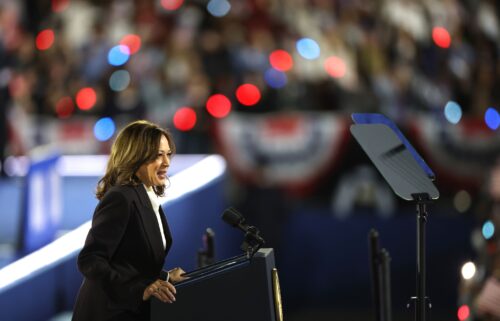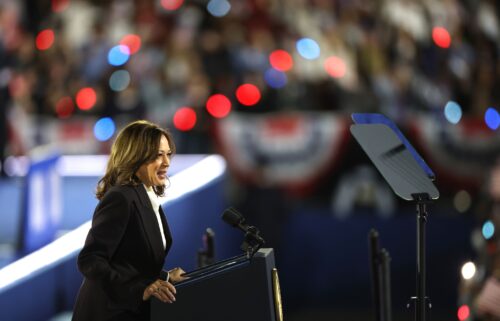McConnell floats debt ceiling proposal amid partisan stalemate
By Clare Foran, Ali Zaslav, Ted Barrett and Manu Raju, CNN
Democrats and Republicans remain locked in a stalemate over how to address the debt limit, but Senate Minority Leader Mitch McConnell is now publicly floating two potential options to avert a default.
It’s not yet clear how Democrats will respond and if there could be a breakthrough to end the impasse this week.
Democrats are now expected to postpone a planned Wednesday afternoon vote to suspend the debt limit to discuss and review McConnell’s proposal. The vote had been on track to fail due to GOP opposition.
In a statement on Wednesday, McConnell said that Republicans have “already made it clear” that they would “assist in expediting” a process known as reconciliation, which would allow Democrats to raise the debt limit without GOP votes. Democrats have been generally opposed to that idea, however, calling it too unwieldy, time-consuming and risky.
In addition to that, McConnell said that Republicans “will also allow Democrats to use normal procedures to pass an emergency debt limit extension at a fixed dollar amount to cover current spending levels into December.”
The Senate had been slated to take a procedural vote later in the afternoon on whether to advance a House-passed bill to suspend the nation’s debt limit until December 2022, and Republicans had been expected to block the measure.
Republicans say that Democrats, who control both chambers of Congress and the White House, should act alone without GOP votes using reconciliation. Democrats have been outraged over the GOP position, arguing that the debt limit is a shared bipartisan responsibility.
Wednesday’s planned vote would be an attempt to break a filibuster to end debate and proceed to a final vote on passage. It would need 60 votes to succeed and Democrats, who control 50 seats, would have to find at least 10 Republicans willing to vote in support, which is not expected to happen.
Last week, Senate Republicans blocked a bill to suspend the debt limit and avert a government shutdown from advancing. Later in the week, Senate Majority Leader Chuck Schumer made a unanimous consent request to set up a vote to suspend the debt limit with a simple majority threshold, but that was also blocked by Republicans.
Democrats are continuing to attempt to pressure Republicans to allow them to approve a debt limit increase by a simple majority vote without Republicans filibustering it. But there is no indication so far that the strategy will succeed.
Senate Majority Leader Chuck Schumer criticized Republicans for being “reckless” and urged them to “get out of the way” and allow Democrats to pass the House bill suspending the debt limit.
“Republican obstruction on the debt ceiling over the last few weeks has been reckless, it’s been irresponsible,” Schumer said in floor remarks Wednesday ahead of the vote. “But nonetheless today Republicans will have an opportunity to get exactly what they kept asking for. The first and easiest option is this: Republicans can simply get out of the way and we can agree to skip the filibuster vote so we can proceed to final passage of this bill.”
Republicans have argued that Democrats are wasting time on votes that have no chance to succeed given that they have made their position clear.
“Even now while the Democratic leader complains that he’s short on time, he continues to waste time with partisan stunts that are dead on arrival. He scheduled yet another vote this afternoon which he knows will fail,” Senate Minority Leader Mitch McConnell said in floor remarks on Wednesday ahead of the vote.
“The majority has known for three months that show votes like this would go nowhere,” McConnell added.
Treasury Secretary Janet Yellen has warned lawmakers that the federal government will likely run out of cash by October 18 unless Congress raises the debt ceiling. But Congress might not even have that long.
That’s because October 18 is not a set-in-stone deadline. It’s more of a best guess estimate of when the money will run out, which makes it far harder to know exactly when Congress would need to act to avert potential financial catastrophe — and increases the odds that lawmakers could accidentally trigger a default by not acting soon enough.
This story and headline have been updated with additional developments Wednesday.
The-CNN-Wire
™ & © 2021 Cable News Network, Inc., a WarnerMedia Company. All rights reserved.
CNN’s Matt Egan contributed to this report.



